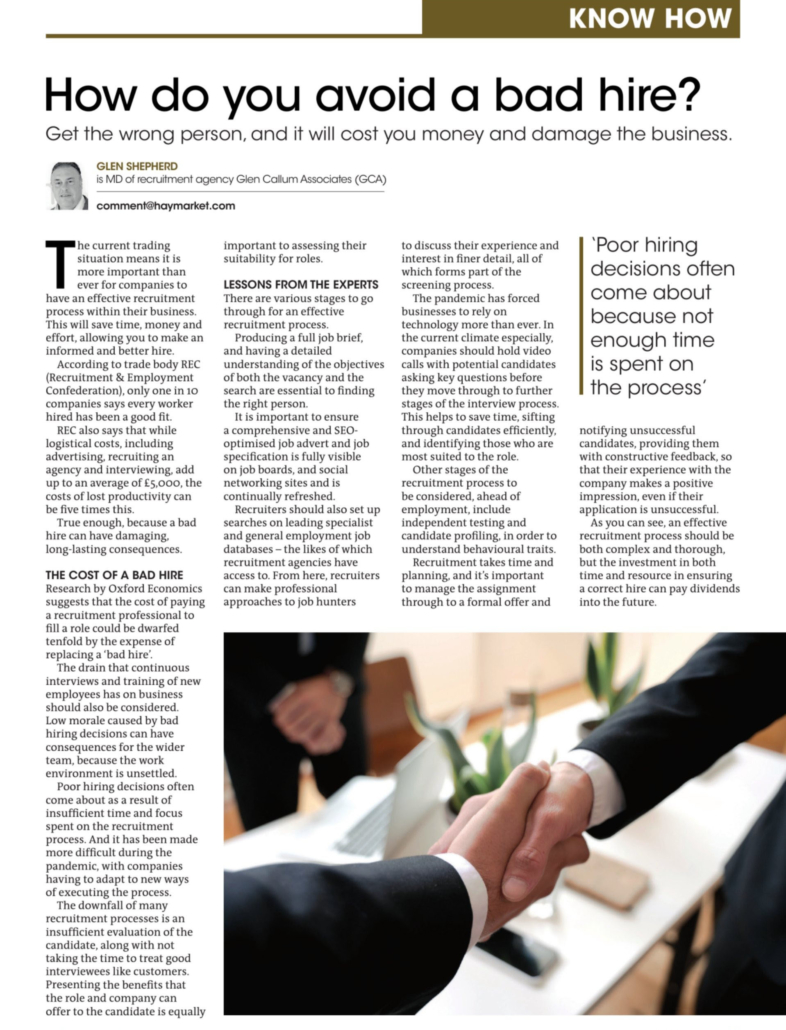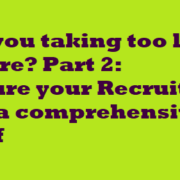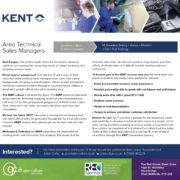‘How to avoid a bad hire’ – Glen Shepherd
In the most recent issue of CAT, GCA director, Glen Shepherd, advised on best practice for hiring the right people, looking at the cost of a bad hire and offering top tips on attracting the very best talent.

How do you avoid a bad hire?
Get the wrong person and it will cost you money and damage the business.
The current trading situation means it is more important than ever for companies to have an effective recruitment process within their business. This will save time, money and effort, allowing you to make an informed and better hire.
According to REC, the Recruitment Industries leading trade body, only one in ten companies say that every worker they have hired is a good fit.
REC also states that while logistical costs including advertising, recruiting an agency and interviewing, add up to an average of £5,000, the costs of lost productivity can be five times this, or up to £25,000.
True enough, as the cost of a bad hire can be detrimental and have damaging, long lasting consequences for a business.
The cost of a bad hire
Research by Oxford Economics suggests that the cost of paying a recruitment professional to successfully fill a role could be dwarfed by the potential expense of replacing a ‘bad hire’.
The cost of rectifying this poor hiring decision could be up to 10 times the cost of the fee for instructing a professional recruitment company.
The drain that continuous interviews and training of new employees has on business should be considered. Low morale caused by bad hiring decisions can have consequences for the wider team, as there is no consistency and an unsettled work environment.
Poor hiring decisions often come about as a result of insufficient time and focus spent on the recruitment process itself. Recruitment has been more testing during a pandemic with companies having to adapt to new ways of executing the interview process.
The downfall of many recruitment processes is an insufficient evaluation of the candidate, along with not taking the time to treat outstanding interviewees like customers and and presenting the benefits to the candidate that the role and company can offer as much as much as assessing their suitability. For a recruitment consultant, accurately filling vacancies is what generates 100% of their income, thus they have a far greater incentive to go the extra mile to source the best person for a role.
Lessons from the experts
Automotive aftermarket recruitment specialist, Glen Callum Associates (GCA), advises that there are various stages to go through for an effective recruitment process. Producing a full job brief and understanding of the objectives of the vacancy and the search / headhunt criteria is an essential starting point to finding the right person for the role.
It is important to ensure a comprehensive and SEO-optimised job advert / job specification is fully visible on job boards and social networking sites that is continually refreshed should be the next port of call.
Recruiters should also set up searches on leading specialist and general employment job databases – the likes of which recruitment agencies, such as GCA, has access to – which will send updates to the hiring company on new candidates as soon as they register. From here, recruiters can make professional approaches to job hunters to discuss their experience and interest in finer detail.
The pandemic has forced businesses to rely on technology more than ever. In the current climate especially, good recruiters should hold video calls with potential candidates – something that GCA has added to its list of resources – and ask three key questions to candidates before they move through to further stages of the interview process. This helps to save time in the long run by sifting through candidates efficiently and identifying those who are most suited to the role.
Other stages of the recruitment process to be considered include independent testing and candidate profiling ahead of employment to understand behavioural traits. GCA offers this service in its all-inclusive package, for final stage candidates.
Recruitment agencies can also manage the assignment through to formal offer and notify unsuccessful candidates, providing them with constructive feedback, so that their experience with the company makes a positive impression, even if their application is unsuccessful.
As you can see, an effective recruitment process is complex and thorough, but the investment in both time and resource in ensuring a correct hire can pay dividends into the future.











Leave a Reply
Want to join the discussion?Feel free to contribute!